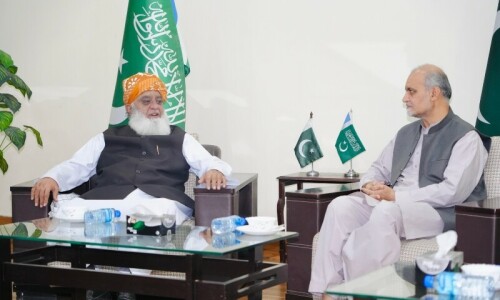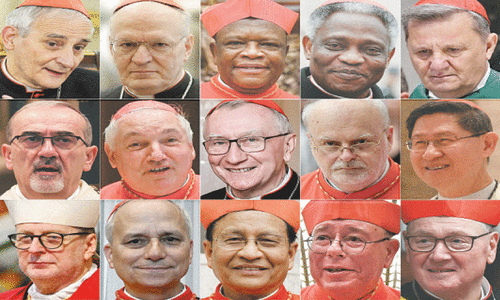LONDON, Oct 3: A BBC report quoted Afghan militant leader Sirajuddin Haqqani on Monday as saying he had been approached by the United States to join the Afghan government and denying that his group was behind the killing of peace envoy Professor Burhanuddin Rabbani.
The Pakistan-based Haqqani network is affiliated with both the Taliban and Al Qaeda and has been described by the US and other western nations as the top security threat in Afghanistan. The group has been blamed for hundreds of attacks, including a 20-hour siege of the US Embassy and Nato headquarters in Kabul last month.
The group’s is led by Jalaluddin Haqqani, but the ailing leader has relinquished most operational control to one of his sons, Sirajuddin.
Last week, US officials accused Pakistan’s spy agency of assisting the Haqqanis in attacks on western targets in Afghanistan.
However, Sirajuddin Haqqani told the BBC Pashtu service that while the group had contacts with a number of spy agencies, including that of Pakistan, during the Soviet invasion, “there are now no such links that could be beneficial”.
“Right from the first day of Americans’ arrival till this day not only Pakistani, but other Islamic and non-Islamic countries, including America, contacted us and they are still doing so, they are asking us to leave the ranks of Islamic Emirates,” he said referring to the Taliban leadership.
He said that the outsiders had promised an “important role in the government of Afghanistan”. He accused the US and other countries of trying to create ‘tension’ among militants.
Haqqani denied that his group took part in the Sept 20 assassination of former Afghan president Rabbani.
“We haven’t killed Burhanuddin Rabbani and this has been said many times by the spokespersons of Islamic Emirate,” he said.
Afghan President Hamid Karzai’s office recently said that a special commission investigating Mr Rabbani’s death had concluded the attack was planned by the Taliban in Quetta. It also said the primary assailant was a Pakistani citizen.
However, no Afghan officials have specifically accused the Haqqani network over the killing.
The BBC, which posted the comments on its website, said it conducted the interview by submitting written questions to Haqqani, who then recorded an audio response.
In Brussels, Nato chief Anders Fogh Rasmussen said he did not have information on who killed Prof Rabbini, but that nevertheless “it’s obvious that the Haqqani network constitutes a threat both to the Afghan people and to our troops in Afghanistan”.
“We encourage the Pakistani government and military to deal with the safe havens in border regions. It’s obvious that there is cross-border traffic by Haqqani network and other terrorist groups there,” he said.—Agencies













































